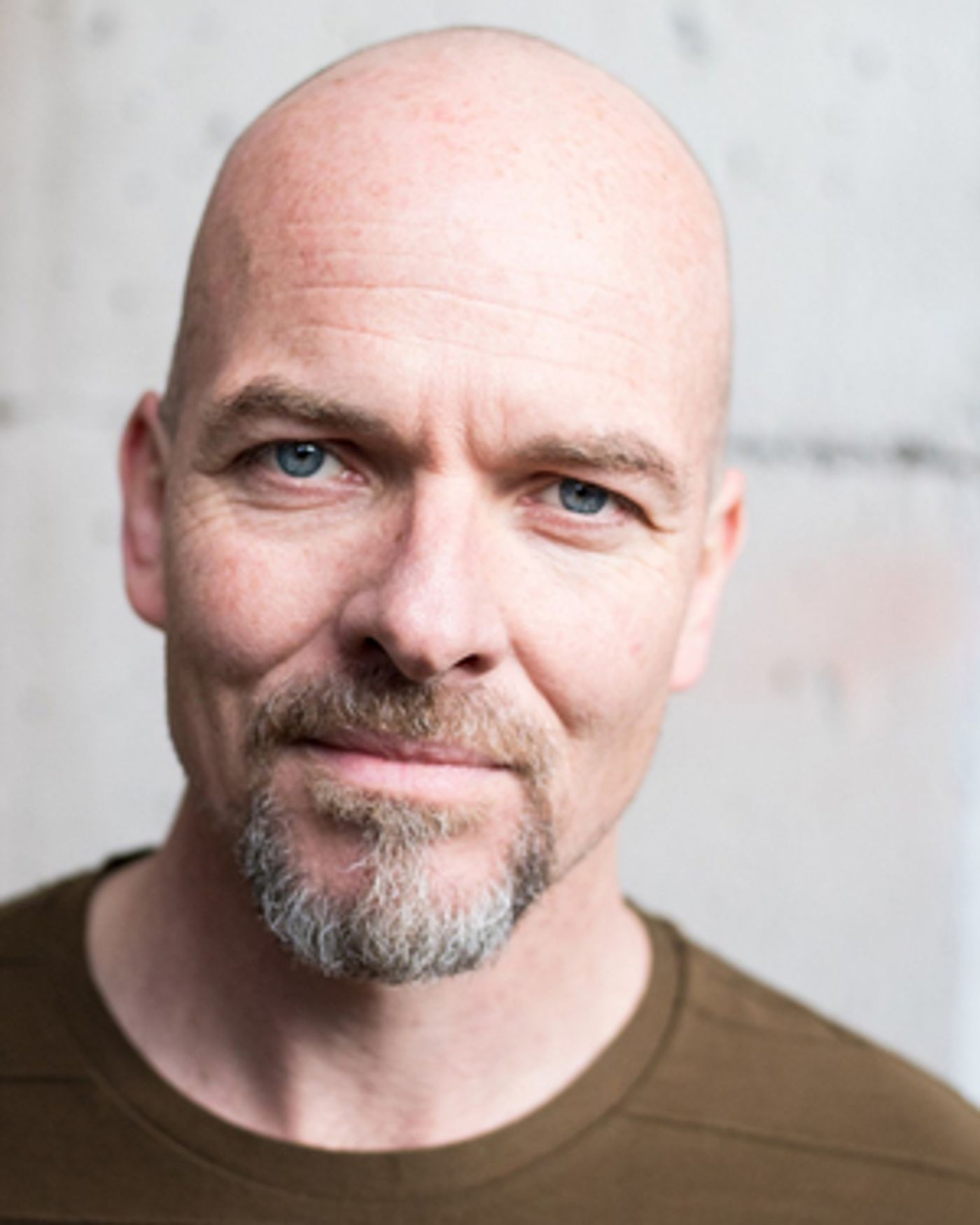Interview: Jim Pope Discusses 10 Years of PLAYING ON
The charity's artistic director talks about using the arts to support vulnerable people

Jim Pope is the Artistic Director of Playing ON, a theatre company who have worked with vulnerable people such as prisoners and prison staff, mental health service users, those in recovery for addiction, young people in care, and many more. We spoke to Pope about the charity as it marks its 10th anniversary.
Who inspired you most growing up?
I grew up in the land of Robin Hood during a time when Brian Clough had transformed Nottingham Forest, a hitherto small and unglamorous minnow of a football team into world-beaters. This is in my blood, and whilst not exactly aspiring to rob the rich I have always lived for opportunities to support the underdog.
It is so exciting being part of something which surpasses everyone's expectations. This seems to be what we have achieved with Playing ON. The late, great Brian Clough would have said: "We may not be the best socially inclusive theatre company in the world, but we are definitely in the top one."
How have you found this year? What has given you hope or solace during lockdown?
It has been a complete shock to the system, and I don't really think we will be able to process what has happened until there is some distance between us and COVID. There hasn't been a day without the pandemic dominating the entire news and all our conversations.
As well as the dreadful virus itself, it is an enormous challenge to our mental health and wellbeing. At first, I drank too much wine, ate too many crisps and started smoking again, before realising that exercise and meditation would probably serve me better in the long run.
From a work perspective, we are busier now than we have ever been. Thanks to our brilliant producer Rhian Davies, we were very quick to pivot our work to online delivery. There is an increased need for the engagement we offer now as more people are isolated, lonely and looking for something meaningful to engage with.
Our Drilling Diamonds project in Tower Hamlets was created in lockdown and filmed with social distancing in place using zoom and GoPro cameras. It has been nominated for a Children And Young People Now Award, which we are so excited about.
Congratulations to Playing ON for ten years of creating theatre! How did the theatre company come about?
When I was working at the National Youth Theatre, I created a programme of learning called the Playing Up course for young people not in education, employment or training.
I joined with Philip Osment, and after extensive research in young offenders' institutes around London, he wrote the play INSIDE for students who had graduated the programme, several of whom had direct experience of the criminal justice system.
In the short term, we wanted to provide professional development for the cast. We had received Arts Council funding to produce the play at The Roundhouse in Camden with some additional funds to deliver a theatre engagement programme with MAC-UK, a local mental health charity for young people at risk of gang involvement. To realise this, we needed to create a company so in 2010. Playing ON was born.
Our longer-term vision was to create a permanent theatre company, which would enable disenfranchised people to have their voices heard in community spaces and theatres.
Philip sadly passed away last year, but his legacy lives on, and his contribution to the way we have grown is at the centre of everything we do.
Any highlights from the past ten years?
After the success of INSIDE at the Roundhouse, we were asked to speak at the House of Lords, where they were discussing a recent white paper on prison education reform.
I think they wanted a panel discussion from us, but we jumped on the chairs and performed a loud sweary scene from the play. Fortunately for us, they appreciated the pathos and beauty of Philips writing, and it went down a storm, leading to a lively and insightful discussion.
Another highlight was when we were resident at the Maudsley hospital devising theatre for mental health staff and service users. Several of the patients were discharged on the strength of the improvisation skills they had shown in a performance, and one of the participants said when attending rehearsals, "I'm off now to be mad and I don't have to be sectioned for it."
More recently it was nice to be nominated for an Off-West End Award for best director in March for "Can I Help You?" which was Philip's last play before he died. I am crossing my fingers that as the nomination came in just before the closure of all theatres, there will be no other competitors in my category and I will win it.
What's been the most challenging aspect of supporting disenfranchised individuals through theatre?
Starting a radical new theatre company was never going to be easy in the aftermath of the financial crash of 2009. We struggled from project to project in the first few years, determined to show that it is possible to use our approach to both encourage community participation and produce high-quality new theatre. I had hair at the start of all this!
Over the years with each new project, our confidence has grown. We have cemented many valuable relationships, expanding the Playing ON community with associate artists, external partners and other kindred spirits.
Although we are getting closer every day, we are not yet in receipt of regular core funding. The times we are living in will bring incredible shortages in public spending.
Our real challenge will be communicating the message that keeping someone out of prison or psychiatric care, training NHS staff to make spaces for their own wellbeing, training artists to deliver our work, and ultimately producing theatre for all to see will benefit the economy.

How do you plan to continue to engage with local communities?
We are currently devising a drama with the East London NHS Foundation Trust building on the techniques we discovered with our Tower Hamlets Drilling Diamonds programme. We have conducted seven weekly Zoom sessions with mental health professionals alongside those who have lived experience of mental illness. Of course, the two groups are not mutually exclusive.
The sessions themselves are designed to keep up the emotional wellbeing of the group and inform scenes, which we will film next week with social distancing measures in place. The final product will be used as a training resource for junior doctors.
We are also raising funds to run another Drilling Diamonds programme with young Londoners helping them to tell their stories through improvisation, music, film and theatre.
Following a successful pilot earlier on in the year, we hope to partner with national youth charity Leap Confronting Conflict and bring our interventional drama programme to young care leavers.
We are planning a second phase of R&D for a touring theatre production in partnership with the trans community as a continuation of a devised project at Rose Bruford College. As it stands currently it is a musical verbatim piece set in an aquarium about gender, sexuality and fish.
We are formalising our training offer with a manual which describes our methodology and a two-day training for all practitioners wishing to work with us or use our techniques in their own practice.
Why do you think it is important to use theatre in community engagement?
I think the simple answer is that it can help people break down personal barriers and learn things about themselves and others. Of course, this can also be said about other creative pursuits, but theatre is the most immediate and accessible of the arts.
The only equipment needed is the individual and the desire to communicate. If I may flip the question though I think we might arrive at something more urgent. Playing ON believes it is important to use community engagement in theatre.
Our professional productions are infused with authenticity, which comes from developing meaningful relationships with community groups. If the theatre is to offer something which Netflix cannot, it must explore its potential to open up conversations, which the community is invested in.
Any advice for aspiring artistic directors?
Have a vision. Find a good team of people and a creative producer who share your vision. Keep testing your vision. Drink a bit less wine.
How can we support the work of organisations like Playing ON?
To celebrate our 10th birthday and the launch of our new website we have listed 10 ways to support our organisation. Don't feel you have to only do one!
More information about Playing ON can be found on their website
Photo credit: Michael O'Reilly
Videos

